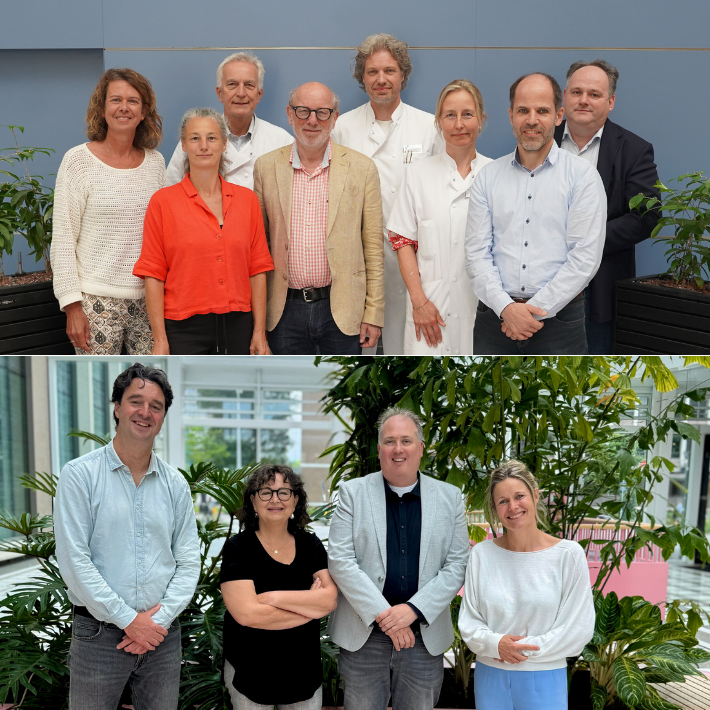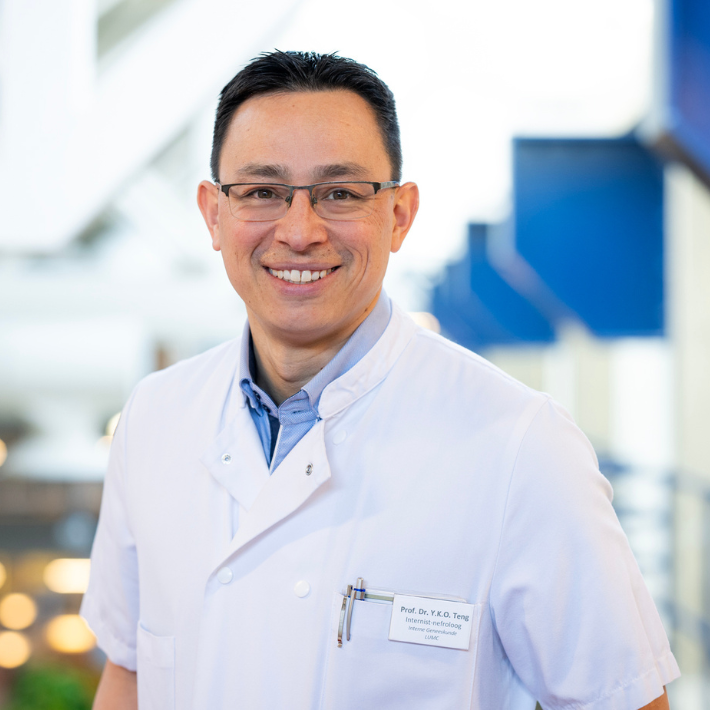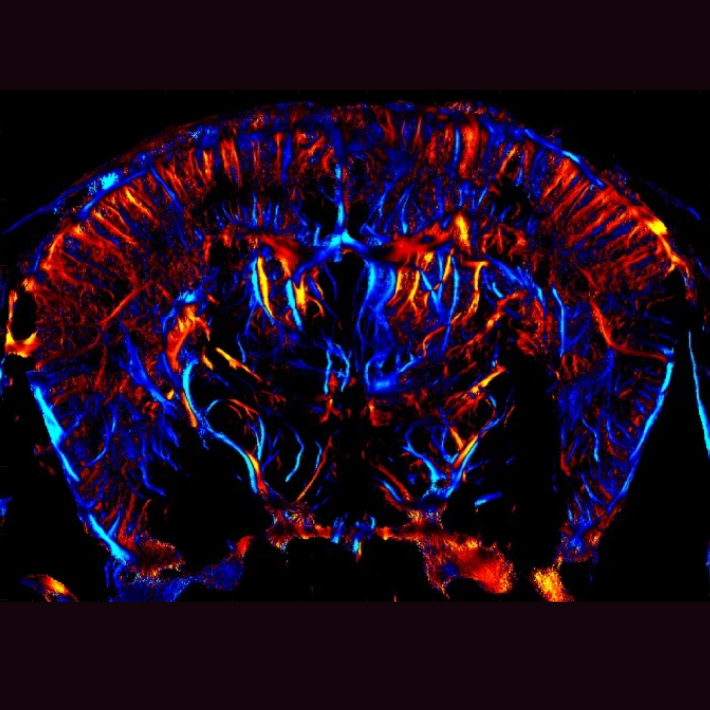€14.6 million for groundbreaking research into CAR T-cell therapy for autoimmune diseases
Picture above (LUMC) f.l.t.r.: Mirjam Heemskerk, Rosa de groot, Hendrik Veelken, Tom Huizinga, Joost Vermaat, Jeska de Vries-Bouwstra, Hans Ulrich Scherer and Wilbert van den Hout. Picture below (Amsterdam UMC) f.l.t.r.: Joost Raaphorst, Marie José Kersten, Sander Tas and Ilse Kuipers
&width=710&height=710)
This funding will enable a clinical study involving patients with serious autoimmune conditions such as systemic lupus erythematosus (SLE), systemic sclerosis, myositis, and myasthenia gravis. Patient selection and treatment will be conducted at both LUMC and Amsterdam UMC. Professor Hans Ulrich Scherer of the LUMC, the principal applicant for the project titled CAR T cells for B-cell mediated autoimmune diseases: the step towards Cure (CAR-TB-CURE), will coordinate the study.
Scherer: “In autoimmune diseases, the immune system mistakenly attacks the body’s own tissues. This study explores whether CAR-T cells, produced within the hospital, can correct these errors of the immune system. If successful, patients could stop taking medication and achieve what is called a drug-free remission. We will test this approach in a small group of patients for whom standard treatments no longer work. The study will also generate valuable insights into the feasibility and cost-effectiveness of academic CAR-T cell therapy, helping to assess whether it can be included in the standard health insurance package in the Netherlands.”
A potential breakthrough in autoimmune disease treatment
Millions of people worldwide suffer from autoimmune diseases, which cause ongoing symptoms and serious health issues. In many of these conditions, B cells mistakenly attack the body’s own tissues, contributing to disease progression. Originally developed to treat acute leukemia and lymphoma, CAR-T cell therapy offers a new strategy: it selectively removes these harmful B cells. By doing so, it may reset the immune system and lead to long-term symptom relief—what we call remission.
Professor of Rheumatology Sander Tas, co-applicant and lead investigator at Amsterdam UMC, explains: “We believe this groundbreaking treatment has the potential to even cure some patients—which is truly exceptional. It could make a meaningful difference for people living with various autoimmune diseases, including those with severe muscle disorders. Thanks to close collaboration between the departments of hematology, rheumatology, and neurology, we are able to deliver this advanced level of care.”
Building on CAR-T Cell expertise
For years, these centers have successfully applied CAR-T cell therapy in the treatment of lymphoma, blood cancers, and multiple myeloma, gaining extensive experience with its use. LUMC hematologist Joost Vermaat notes: “Through the national CAR-T tumor board, academic centers have worked closely together in recent years. This collaboration has led to a strong foundation of shared expertise and has ensured the highest level of safety in administering CAR-T cell therapy.”
In recent years, LUMC has built an in-hospital capacity for producing CAR-T cells—the so-called ‘academic production’—and, through earlier studies, gained valuable insights into the manufacturing process. Amsterdam UMC is also preparing to launch academic production, in close collaboration with Sanquin. Rosa de Groot, Head of Cell Production at LUMC, explains: “We are building on 25 years of experience in developing cell therapies for patients with blood disorders. This foundation has allowed us to form a highly skilled production team with critical expertise.” That expertise, along with the dedicated team and on-site facilities, is now being put to work to make high-quality CAR-T cell therapy more efficiently available for autoimmune diseases and to enhance treatment outcomes. LUMC has already successfully treated its first patient with SLE—outside the scope of a clinical study.
Affordable CAR-T Cell Therapy
Currently, no approved CAR-T cell therapies exist for autoimmune diseases. Commercial CAR-T treatments for cancer can cost more than €360,000 per patient, and similar high costs are expected for autoimmune indications. Professor of Hematology Marie José Kersten (Amsterdam UMC) notes: “Producing high-quality CAR-T cells through so-called academic production can help lower these costs, making the therapy more accessible to a greater number of patients.” To support this effort, the team will use a critical component developed by researchers at Hospital Clínic de Barcelona—an innovation that helps keep production costs under control.
With financial support from the research program ‘Potentially Promising Care’ combined with their extensive expertise in CAR-T cell therapy, LUMC and Amsterdam UMC are taking a major step toward delivering innovative and accessible care for patients with autoimmune diseases.
This study is made possible through close collaboration between the departments of Rheumatology (LUMC and Amsterdam UMC), Hematology (LUMC and Amsterdam UMC), Neurology (LUMC and Amsterdam UMC), Nephrology (LUMC), Biomedical Data Sciences (LUMC), and Sanquin.

&width=710&height=710)
&width=710&height=710)
&width=710&height=710)